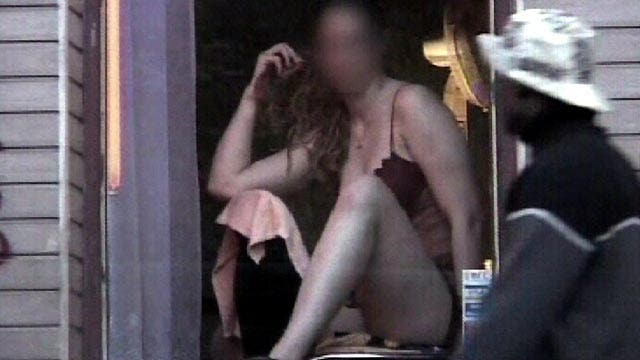Why human trafficking will not end until it ends in India
Raising awareness about the abuse of the poorest of the poor in India. Brent Martz on the struggle of the Dalits and what can be done to help them
For generations, 300 million Dalits—the poorest of the poor in India—have been taught that they are worthless.
Less than human.
Excluded from society, they have limited access to education or justice.
They are used, cheated, and abused freely by others.
They are given no protection by law enforcement; no access to the courts; no political voice; no hope of upward mobility.
With no resources and no hope, many Dalit women and children succumb to India’s thriving human-trafficking industry.
But with 27 million modern-day slaves around the world, 100,000 of which are child prostitutes in the United States, why do the Dalits matter?
[pullquote]
The Dalits matter because human trafficking will not come to an end around the world, until it comes to an end in India.
Didn’t the End It Movement already raise enough awareness of human trafficking to make a mark for 2013? Do we really need another organization shouting their anti-trafficking cause from the rooftops?
Yes, we do. And here’s why:
- Buying and selling human beings is larger now than any other time in history, and it includes a global industry built on forcing children into sex.
- India is the epicenter of human trafficking—including 100 million people, with 1.2 million child prostitutes. It tops the list of countries when it comes to transit, destination and source of human trafficking victims. According to the United Nations, the most dangerous place in the world to a girl or woman is India.
- Two hundred thousand Indian children a year are sold into slavery, many by their parents for a mere $17 dollars.
- Dalits are uneducated and illiterate, and have been taught for hundreds of years that they are worthless. They have no idea the caste system, in which they are the bottom of the proverbial food chain, has beenoutlawed. They have no idea they have rights. They have no idea they are human.
The Indian government prefers it this way. Elected officials and local police are members of the “outlawed” upper caste, so why would they want to protect the Dalits and eliminate India’s slave labor force? They don’t.
Awareness is huge, and great progress has been made on that front. But in addition to shouting, we need people doing.
But what can be done to end such a massive problem? What can be done to reverse the endless generations living life as Dalits with no self worth?
Education.
And by education, I don’t mean scholarships. I mean holistic education: the purchase of land, construction of a permanent facility and the employment of permanent teachers.
Dalits need schools where they can learn. Where they can exercise the brain they don’t know they have. Where they can discover self worth. Where their hunger to be known, to learn, to grow and to live can be fed.
Dalits need teachers who believe in them. Teachers who show them love, patience, kindness, and tenderness they’ve never experienced. Teachers who make sure their students feel valued and worthy of life.
Dalits need community. A community budding with hope and pride, stemming from the newfound self worth children are discovering each day in school. A village transformed into a community by sports, arts and community events held at school.
The Dalits desperately need another organization committed to the prevention of human trafficking through education.
Enter the Not Today Coalition.
Born out of more than 10 years of work by the members Friends Church in Yorba Linda, Calif., Not Today Coalition is working to prevent the exploitation of the Dalits of India by transforming lives through education and restoration for Dalit families and villages.
Hundreds of Friends Church members have travelled to India to see and experience the work first hand, built 40 schools, funded many adult vocational training centers, and sponsored 1,500 children.
But now it’s time to grow. Now it’s time to show the Dalits they’re not forgotten. Now it’s time for you to act.
By educating the Dalits, we can help bring an end to human trafficking in India. By bringing an end to human trafficking in the number one source and destination for human trafficking victims in the world, we can end trafficking across the globe.
It is our goal to fund 1,000 schools, affecting 25,000 Dalit communities, impacting 500,000 Dalit children per year.
And we can’t do it without you.

